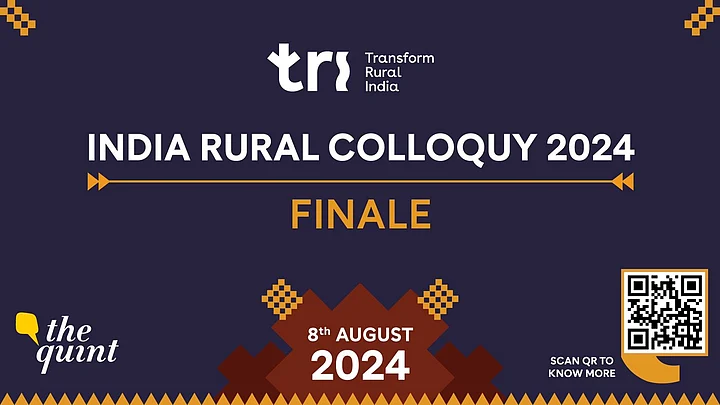The Fourth Edition of India Rural Colloquy 2024, a flagship event that has become a pivotal platform for discussions on rural India's future, concluded on August 8 with a sobering reminder of the challenges still facing the country. On its final day, the Colloquy, held under the banner of Transform Rural India (TRI), hosted a critical session titled "Mind the Gap | Imperatives To Women Labour Force Participation in Rural India" at Delhi's India International Centre. The session drew attention to the concerning regression in India’s gender gap closure, which now stands at just 64.1%.
This fourth edition of the Colloquy, spanning eight days and crossing five states, brought together a diverse array of voices—from civil society, government, and the private sector—to tackle the multifaceted issues plaguing rural India. Among the many pressing concerns discussed, the declining participation of women in the rural labor force, exacerbated by gender violence and systemic barriers, took center stage.
Notable dignitaries and experts participated in the finale session, including Saachi Bhalla (Senior Programme Officer, BMGF), Madhu Mehra (Executive Director, Partners for Law in Development), Trisha Pareek (Youth and gender specialist, UNFPA), Joy Elamon (Ex-Director, Kerala institute of Local level Administration), Yamini Atmavilas (Dasra), Meenakshi Negi (IFS, Member Secretary, National Commission of Women), Aliva Das (Associate Director, Transform Rural India) and Geeta Dewra (Nari Adhikar Kendra). Their collective insights painted a grim picture of the vulnerabilities faced by rural women, particularly those engaged in the informal sector, who are disproportionately subjected to physical, sexual, economic, and emotional violence. This violence, in turn, severely restricts their economic participation and perpetuates the gender gap.
Aliva Das, Associate Director at Transform Rural India, emphasized the government's ongoing efforts to prioritize women's safety and security through various programs and schemes. However, she acknowledged the gaps in implementation, noting, "The intent is already there, but there is still some way to go in terms of the capability to solve these issues." Das called for a more integrated approach, urging different governmental departments to collaborate more effectively to address the safety and security challenges faced by rural women.
The session underscored the urgent need for actionable solutions to bridge the gender gap and foster greater inclusion of women in the rural workforce. As India continues to grapple with these challenges, the insights and discussions from the India Rural Colloquy 2024 serve as a crucial blueprint for policymakers, activists, and communities committed to realizing the full potential of rural India.
Throughout its eight-day run, the Colloquy facilitated in-depth conversations on a broad spectrum of issues, including climate change vulnerability, healthcare and nutrition gaps, youth employment, microenterprises, and local governance. The overarching goal was to inspire a rural renaissance, fostering sustainable development that can uplift millions of lives across the country's vast rural landscape.
As the Colloquy concluded, it left participants and observers with a clear message: while progress has been made, significant work remains to ensure that rural India not only survives but thrives. The challenge of closing the gender gap, in particular, looms large, requiring concerted efforts from all sectors of society.
About the India Rural Colloquy:
The India Rural Colloquy, now in its fourth edition, is an annual event organized by Transform Rural India (TRI). Held from August 1-8, 2024, across multiple states, the Colloquy brings together diverse voices to inspire a rural renaissance. The event addresses critical topics such as climate resilience, health and nutrition, youth employment, farm prosperity, and gender inclusivity, aiming to create a thriving rural India. Hosted during the August Kranti week, the Colloquy reflects the spirit of change and action that defines India's largest people-power movement.
